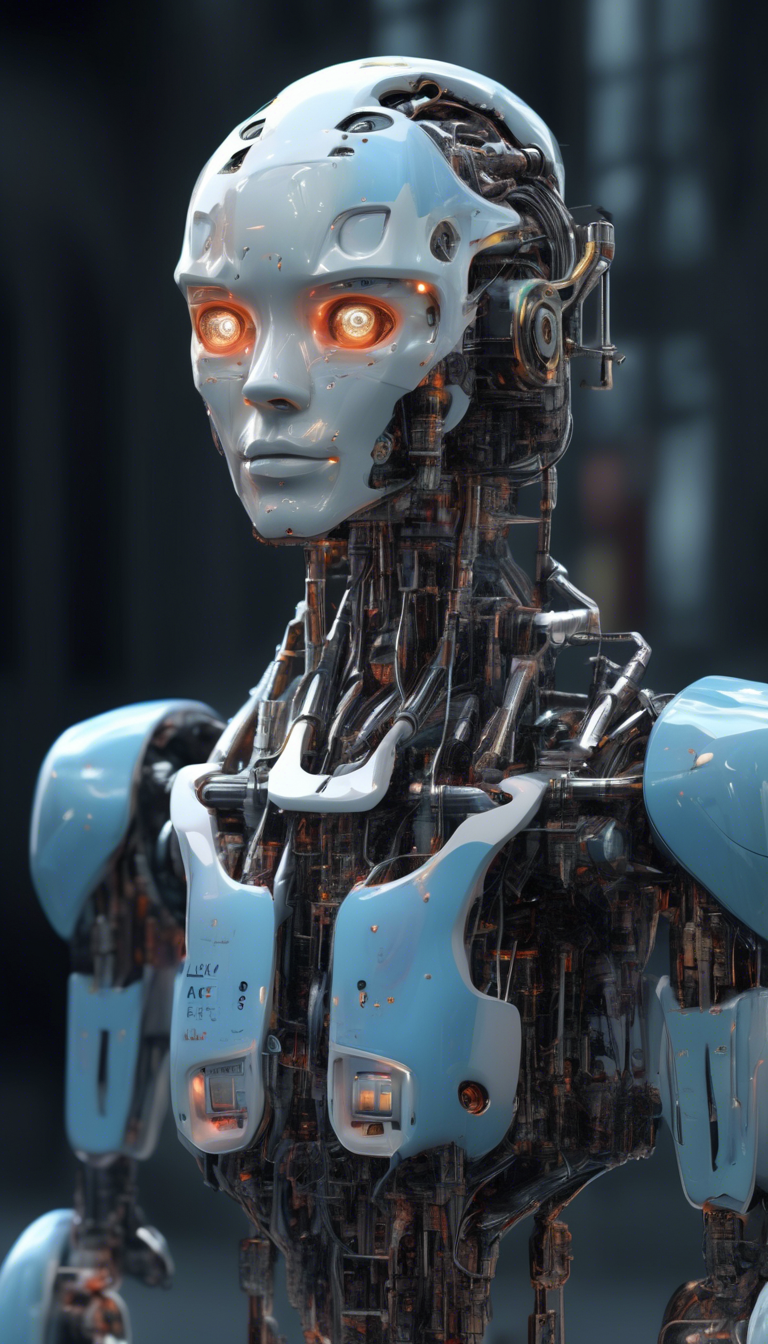The Role of AI Helpers in Enhancing Daily Productivity
In today’s fast-paced world, incorporating technology to streamline daily tasks is more crucial than ever. Enter AI helpers—intelligent software designed to assist with various aspects of our daily routines. These tools can significantly enhance productivity, allowing individuals and organizations to focus on more meaningful tasks.
AI helpers function in multiple capacities, from task management to personal assistance. They provide a seamless integration of functionality and convenience. Here are some key areas where AI helpers can elevate productivity:
- Task Automation: Routine tasks often consume valuable time. AI helpers can take over repetitive chores like scheduling meetings, setting reminders, and managing emails. This leaves individuals with more time to work on pressing projects.
- Information Management: Sorting through large volumes of data can be overwhelming. AI helpers can sift through information, categorizing and summarizing it for easier access. By extracting vital insights, they save users from cognitive overload.
- Personalized Recommendations: Many industries utilize AI helpers to enhance user experience. For instance, in e-commerce, AI can analyze customer behavior to provide tailored product suggestions, making shopping more efficient.
- Enhanced Communication: AI-driven chatbots are increasingly used in customer service settings. These tools can handle inquiries instantly, improving response times and ensuring customers feel valued. This fosters better relationships between businesses and their clients.
- Learning and Development: AI assistants can support learning by recommending resources based on user preferences or even creating personalized study plans. This targeted approach can accelerate skill development and enhance professional growth.
One of the most engaging features of AI helpers is their adaptability. These tools learn from user interactions, increasingly tailoring their functionality to meet specific needs. This level of personalization not only boosts relevance but also enhances user satisfaction.
Additionally, AI helpers contribute to team collaboration. With their ability to integrate with various platforms, they streamline workflows by sharing updates and reminders. When team members can easily access the same information, it fosters a sense of unity and increases overall efficiency.
The use of AI tools is not limited to corporate settings. For individuals, these assistants can simplify daily activities. Imagine going through your week with an AI helper that organizes your schedule, reminds you of important tasks, and even suggests when to take breaks to avoid burnout. This balance of work and downtime is crucial in maintaining productivity without sacrificing well-being.
Moreover, AI helpers also empower remote work—an essential aspect of the modern workplace. As more people work from home or in hybrid environments, these virtual assistants can bridge the gap, ensuring that tasks are executed smoothly. They can coordinate meetings across different time zones or track progress on projects, making remote collaboration seamless.
However, with all technologies, it’s essential to approach AI helpers with a critical mindset. While they can enhance productivity, it’s crucial to use them strategically. Users should assess which tasks genuinely warrant automation or assistance to avoid dependency. Establishing a balance between human intuition and AI support ensures that productivity aligns with authenticity and creativity.
Furthermore, individuals should be aware of privacy considerations. As AI helpers often require access to personal information to function optimally, safeguarding that data is paramount. Opting for reputable platforms that prioritize data security can help mitigate risks while harnessing AI assistants effectively.
AI helpers represent a significant advancement in boosting daily productivity. Their ability to automate tasks, manage information, and personalize recommendations signifies a shift in how we approach work and daily routines. As we embrace these tools, the potential for increased efficiency is not just promising; it’s transforming our daily lives.
As you consider integrating AI helpers into your own routine, reflect on which aspects of your life could benefit most. The right AI assistant can be a game-changer, enabling you to reclaim time and focus on what truly matters.
Ethical Considerations in the Use of AI Helpers for Personal and Professional Tasks
The rise of AI helpers in both personal and professional settings has transformed the way we approach daily tasks. These intelligent assistants offer a range of capabilities, from managing schedules to providing recommendations. However, as we increasingly rely on these tools, ethical considerations surrounding their use become crucial. It’s essential to navigate this landscape with an understanding of both the benefits and potential pitfalls.
One significant ethical concern relates to privacy. AI helpers often require access to personal data to function effectively. This might include calendars, emails, and even social media accounts. Users must consider:
- Data Security: Is the AI platform secure enough to protect your private information?
- Informed Consent: Are users fully aware of what data the AI will access and how it will be used?
- Data Ownership: Who owns the data collected by AI helpers?
Understanding this landscape is vital to protect personal information. Users should actively seek out platforms that prioritize data security and offer transparency regarding data usage.
Another ethical consideration is the potential for bias in AI algorithms. AI helpers are programmed by humans, which means they can inherit biases present in the training data. This can lead to skewed recommendations and decisions. For example:
- Hiring Processes: If an AI assistant is used in recruitment, biased algorithms may favor certain demographics over others.
- Recommendations: Users may receive recommendations that perpetuate stereotypes, inadvertently influencing choices.
To combat this, it’s important for organizations to regularly audit their AI systems. These audits should focus on identifying and mitigating bias, promoting fairness, and ensuring equitable outcomes.
Accountability also plays a significant role in the ethical deployment of AI helpers. When tasks are automated, it can be challenging to determine responsibility, especially if an error occurs. This raises questions such as:
- Who is accountable? If an AI helper provides faulty advice, who takes responsibility for the consequences?
- How is accountability enforced? Are there frameworks in place to address potential grievances stemming from AI decisions?
Industries that use AI systems must establish clear guidelines on accountability. This ensures that users are aware of who to contact in case of issues, fostering trust in AI helpers.
In addition to privacy, bias, and accountability, the ethical implications of job displacement cannot be overlooked. As AI helpers become more prevalent, there’s a growing fear that they will replace human workers in various sectors. This fear raises essential considerations:
- Job Security: How can workers adapt to a labor market increasingly influenced by AI?
- Reskilling Opportunities: What measures are being taken to reskill those displaced by automated technologies?
To address the potential negative impact on employment, companies should invest in training programs that equip their workforce with the necessary skills to work alongside AI. This approach not only ensures job security but fosters a collaborative environment where humans and AI can thrive.
It’s crucial to emphasize the importance of human oversight in the use of AI helpers. While these assistants can significantly enhance productivity, the final decisions should ideally involve human judgment. This ensures that ethical considerations are always at the forefront. Users should be encouraged to:
- Maintain Control: Regularly review the actions and recommendations provided by AI helpers.
- Provide Feedback: Engage with AI systems to improve their performance while ensuring ethical boundaries.
These practices not only enhances the user experience but also strengthens the ethical framework guiding AI usage.
The potential of AI helpers is immense, but it comes with great responsibility. By recognizing and addressing the ethical considerations surrounding their use, individuals and organizations can leverage AI technology in a manner that promotes trust, fairness, and accountability. This not just benefits users but also fosters a sustainable future for AI integration in our daily lives.
Conclusion
As we navigate through an increasingly digital landscape, the role of AI helpers in enhancing both personal and professional productivity cannot be overstated. These intelligent systems streamline tasks, automate routine chores, and provide assistance in decision-making, all while allowing us to focus on more complex and creative endeavors. By doing so, AI helpers empower us to manage our time more effectively, ensuring that we prioritize what truly matters.
Imagine waking up in the morning, and instead of spending time sifting through various apps to get your day organized, you simply ask your AI assistant to create a schedule for you. It can analyze your calendar, suggest optimal meeting times, and even remind you about deadlines. This technology doesn’t just take the edge off our busy lives; it complements our efforts, making us more productive in ways we may have never considered possible. Beyond mere task management, AI helpers can even assist with project collaboration, allowing teams to communicate and share resources seamlessly. Tools like smart scheduling, task allocation, and real-time feedback transform the workplace and ensure that everyone is aligned on goals and timelines.
While the advantages are clear, leveraging AI helpers prompts an important discussion about ethics—an aspect that shouldn’t be overlooked. As we integrate these tools into our work and personal lives, we also accept a responsibility to consider the implications. How much of our decision-making should be delegated to algorithms? What if a seemingly innocuous choice could have long-lasting effects? These questions are particularly relevant in professions where human judgment is paramount, such as healthcare, law, and education. Ensuring that AI tools are used for responsible decision-making requires transparency from developers and users alike.
Moreover, ethical considerations extend to issues of data privacy and security. As AI helpers collect and analyze user data to improve their responses, safeguarding that data becomes essential. Individuals must be informed about what data is being collected and how it will be utilized. For businesses, there’s a fine line between enhancing productivity and risking employee trust. Striking this balance takes a thoughtful approach towards data ethics. Consequently, organizations need to prioritize building trust through transparency and governance.
Additionally, it’s vital to consider the risk of over-reliance on technology. The human touch is irreplaceable, particularly in areas that require empathy and understanding. Though AI can perform tasks faster and with more precision, it cannot replicate human emotions and intuition. Continuous training and education on how to use AI helpers effectively can pave the way for a future where these tools augment human capabilities rather than replace them. Workforce development will be crucial in ensuring that everyone can adapt to these changes smoothly.
Despite these challenges, the intersection of productivity and ethics presents fertile ground for innovation. Businesses and individuals who embrace AI helpers thoughtfully will likely find themselves at a competitive advantage, particularly in a market that increasingly values agility and efficiency. Companies that incorporate ethical considerations into their AI strategies will build more robust systems and foster a culture of responsibility.
As we consider the future of work and life enriched by technology, it’s clear that AI helpers are here to stay. These systems hold the potential to not only elevate our productivity but also redefine our relationship with technology. By marrying innovation with ethical practices, we can ensure that we utilize these tools responsibly while still pushing the boundaries of what is possible in our daily routines.
The journey towards fully realizing the benefits of AI helpers requires continuous engagement with both the technology and the ethical framework surrounding their use. By understanding the advantages and addressing the concerns, we can create a balanced approach where AI enhances our lives while preserving the essence of human connection and accountability. The horizon gleams brightly with opportunities for those willing to embrace the collaborative potential of AI and become active participants in shaping a future that values both innovation and ethics.


